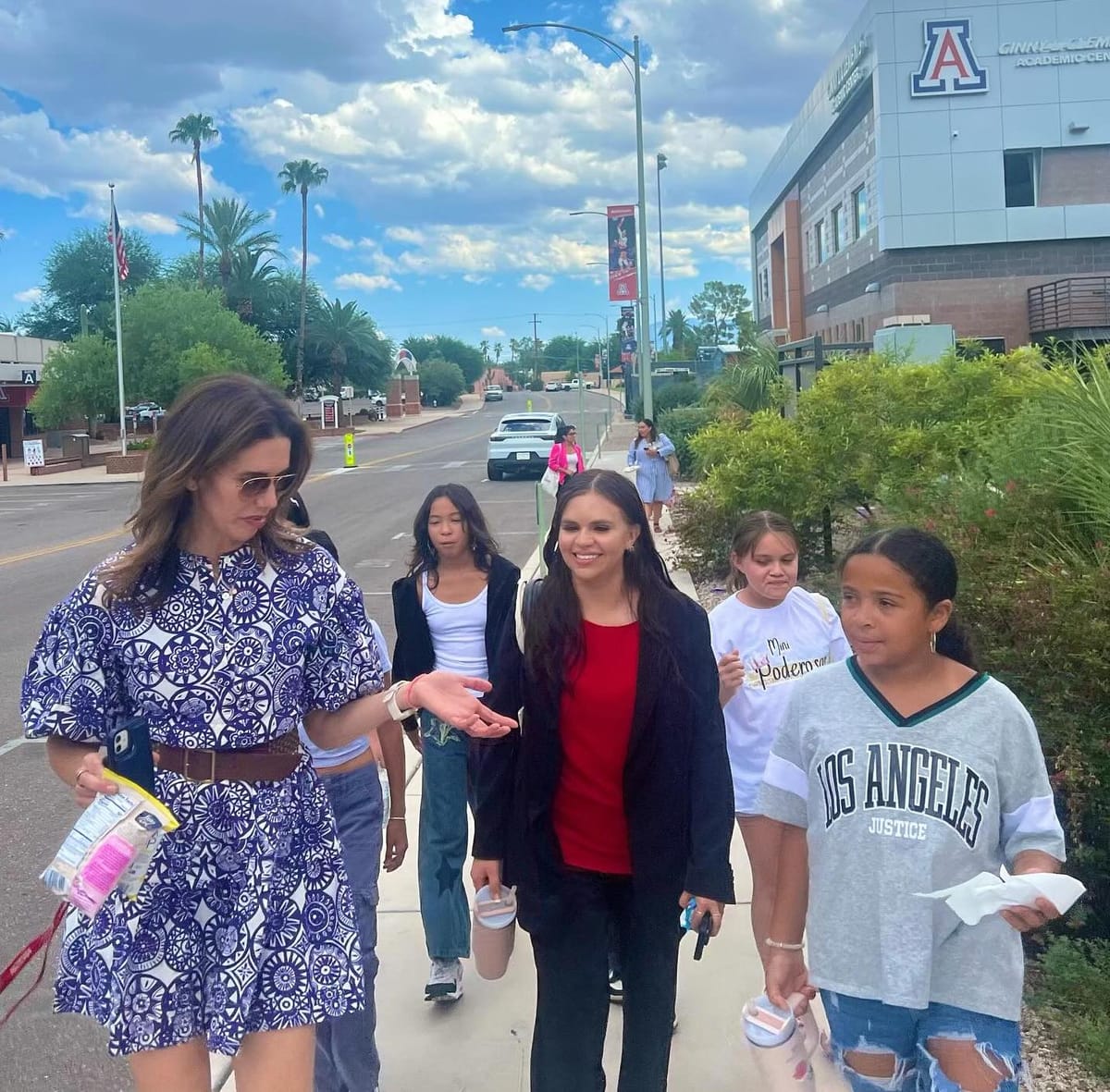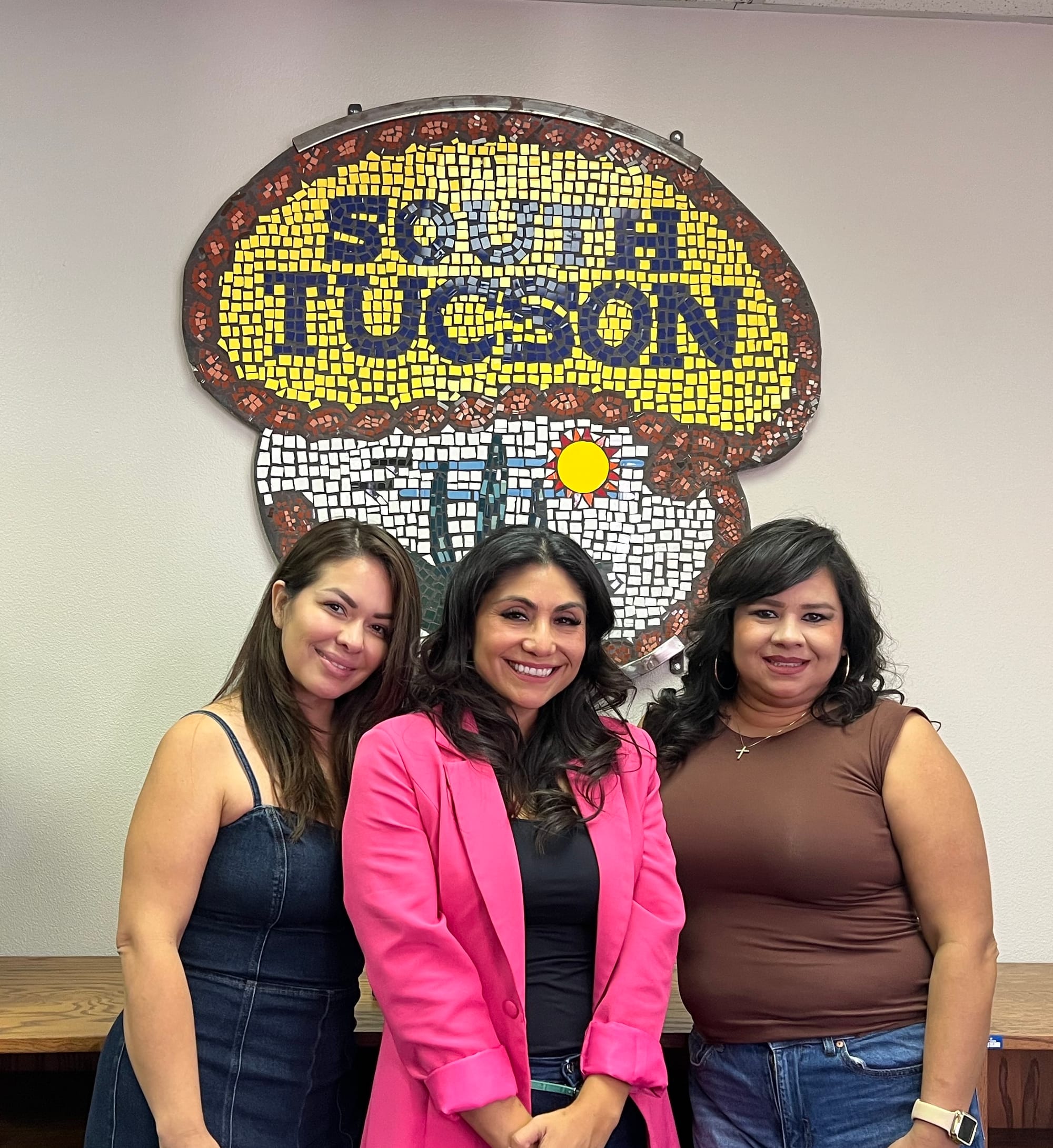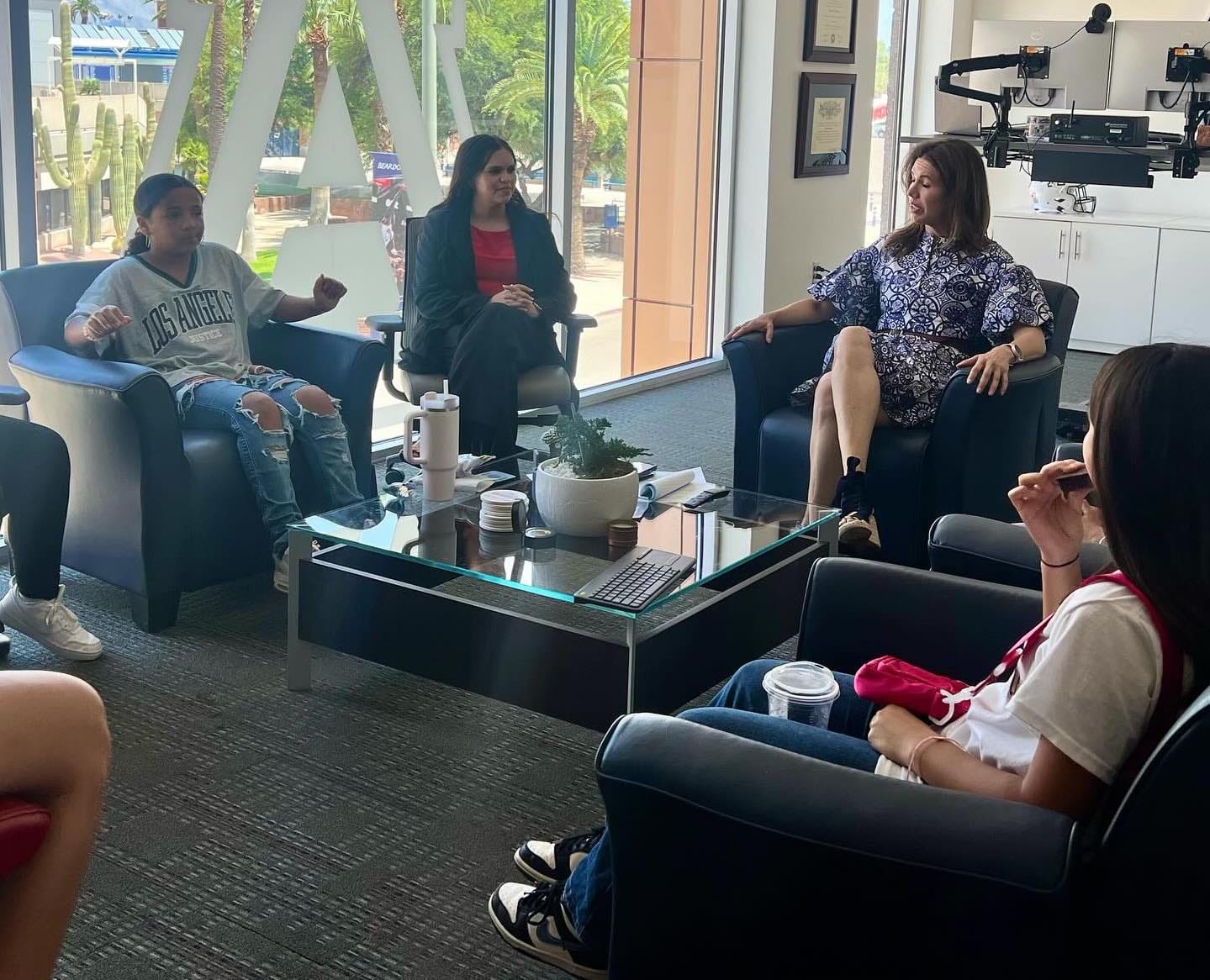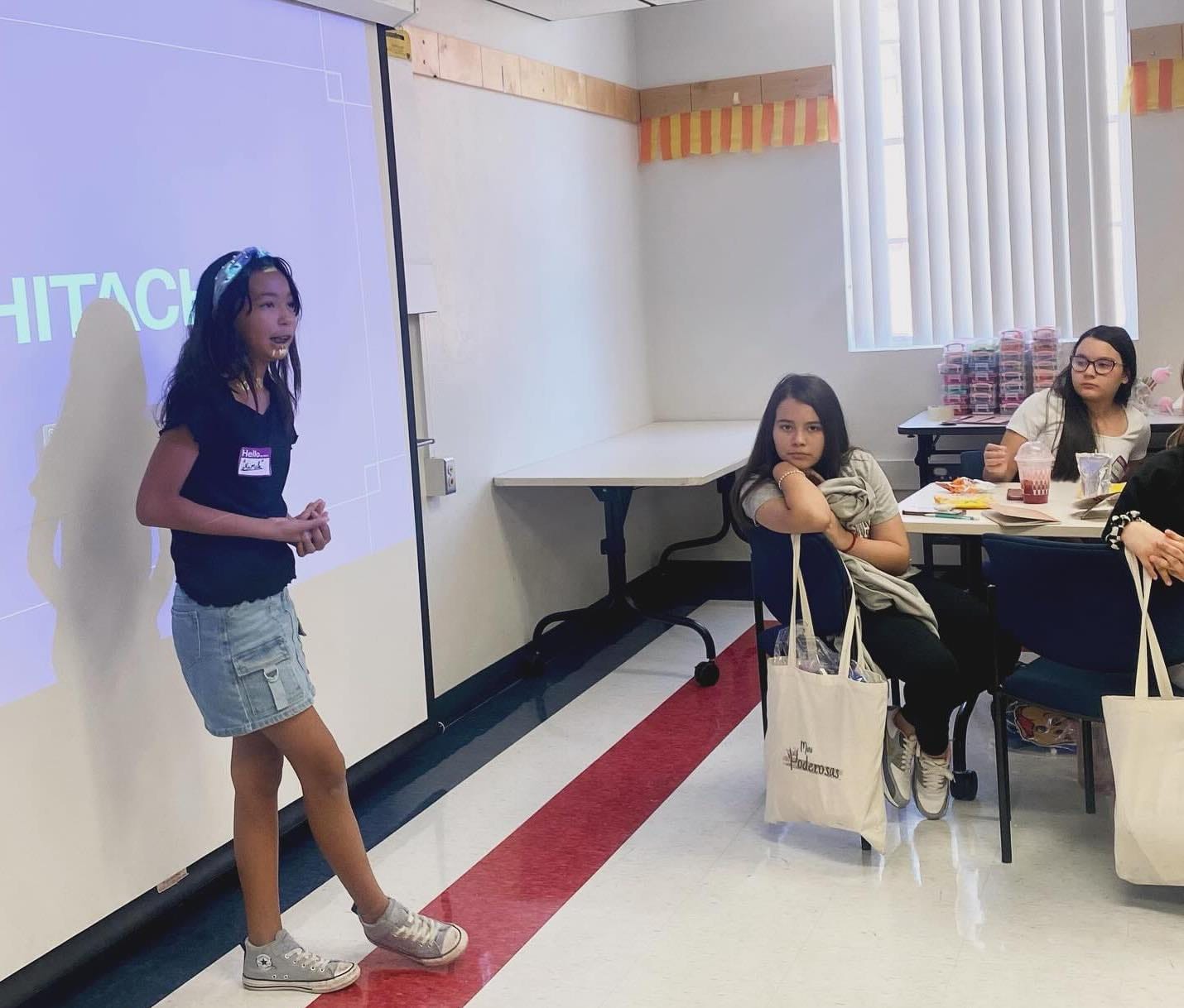Tucson nonprofit aims to connect and empower girls
Mini Poderosas mentors and empowers girls ages 8 through 18 from diverse backgrounds, connecting them with women leaders through events and an annual summer camp.

As a school psychologist, Azucena Bravo worked full-time at Mary Belle McCorkle Academy of Excellence on the southwest side, helping support Title 1 students in their academic needs.
The students were from low-income families who receive educational support through Title 1 as part of the Elementary and Secondary Education Act. Schools are eligible for Title 1 funding if at least 40% of their students are from low-income households.
Bravo believed these students, mostly girls, needed an outlet where they could find support and encouragement and talk about the issues they might be facing in their lives. So she and the school’s counselor, Alex Campbell, created a safe place for them to come and talk.
“It turned into this environment where they can express themselves (and talk about) issues that they go through being a girl.” Bravo told Tucson Spotlight..
Years later, Bravo’s work has moved beyond a single school and into the community through the work of her nonprofit, Mini Poderosas.
Mini Poderosas mentors and empowers girls ages 8 through 18 from diverse backgrounds, connecting them with women leaders through events and an annual summer camp.
On Sunday, Mini Poderosas is holding a “Day in My Uniform” event in conjunction with the International Day of the Girl. Mini Poderosas is partnering with the city of South Tucson and will host nurses, engineers, hairdressers, cosmetologists and other professionals who will give the girls hands-on experience in their career of choice.
“The whole vision with Mini Poderosas is really to get them in these spaces so they can envision themselves there.” Bravo said.
While Mini Poderosas has grown into a community-wide effort, it started out as lunchtime meetings at McCorkle with only a handful of girls.

Bravo and Campbell taught those five girls leadership skills and brought in guest speakers to provide inspiration, and in five years, the lunchtime group had grown to 25.
When the pandemic hit and Bravo was forced to work from home, she started thinking about starting a nonprofit and started to build off the framework she and Campell had crafted at McCorkle.
“When you make it a nonprofit, people come together and start to donate and it becomes a community investment,” Bravo said. “We are investing in our youth so that in the future they can become well-balanced citizens.”
In February of 2021, Mini Poderosas officially became a nonprofit.
Poderosas is the Spanish word for “powerful,” but for Bravo, the name is more significant.
“It has this empowerment to the word,” she said. “So when I thought of it, it was almost like Poderosas in training because their brain is still developing.”
Bravo started a summer camp the same year she launched Mini Poderosas to connect young girls with mentorship outside of the classroom. The camp started with nine girls. This summer, the organization was able to fundraise to support 30 girls.
Bravo wanted to be mindful about the stages of brain development when designing the camp, so she split it into three phases. The first focuses on getting the girls to become self-aware.
“(Teaching them about) what builds them, like their family, their community, their school,” she said.. “So they can become aware about where they are learning their values.”

Next up is emotional regulation. This phase focuses more on the social skills aspect of interactions.
“I teach them a lot about relationship building,” she said. “How to make friends, how to maintain friends, what to do if you have a conflict.”
The last phase is leadership, with Bravo teaching the girls that leadership is not limited to being a president or CEO
“Leadership can be anything,” she said. “They can use the skills they already have and lead anywhere.”
Bravo pointed to an 11-year-old camper named Kamila, who she said exemplifies this shift in perspective about leadership. When she first started attending the camp, Kamilla was hesitant to branch outside of her comfort zone.
But as she moved through the phases and learned more about herself, Kamila became empowered, Bravo said.
Every year, Mini Poderosas elects officers who take the lead during events or field trips.
Initially, Kamila had no interest in running for an office, but something changed as she progressed through the camp.
“As people were presenting, she got the courage,” Bravo said. “At the last minute, she decided to run for social media representative.”
Kamila made an impromptu speech and won the position — and she’s only one of many examples of campers who have found their voice and confidence through Mini Poderosas, Bravo said.

In the future, Bravo hopes to increase the number of girls they’re able to serve and would also like to develop a more consistent system of mentorship.
The University of Arizona’s new athletic director, Desireé Reed-Francois, recently invited the Minis to her office, followed by a visit to the women’s soccer practice and dinner with the team.
Bravo met Francois in a networking event and after telling her about the organization, Francois wanted to be a part of the change.
“I think we need more people like her to be able to guide these girls and really make that direct impact,” Bravo said. “And I think our goal is to develop a system like that so that mentors can genuinely connect with girls.”
Bravo is hopeful to forge more of these connections during Sunday’s “Day in my Uniform” event, and South Tucson officials are eager to help.
South Tucson City Councilwoman Roxy Valenzuela says she’s excited to host the girls and for the event to bring more awareness to the community of South Tucson.
“I think this is just the beginning of us inviting more (of the) community to gather,” she said. “Inviting more programs to come and stem from here.”
Interim South Tucson City Manager Veronica Moreno is helping put on the event, saying she believes these girls are the future.
“We need to show them, empower them, embrace them, teach them, and give them strength,” she said. “This is going to open the door to so many little girls that can’t even imagine right now what is going to be in store for them.”
McKenna Manzo is a journalism major at the University of Arizona and Tucson Spotlight intern. Contact her at mckennamanzo@arizona.edu.



